- Authorship/Authority: the source of the information
- Are authors clearly identified? (It could be a person or group of persons, or an organization of some sort.)
- Are the authors' credentials identified? (e.g. Is there evidence that the author is an academic, a researcher, or affiliated with a particular organization?)
- Is there any sense that the author(s) are credible?
- This might be difficult to ascertain. Ways to determine this include checking sources like Google Scholar to see if the authors have been cited by others.)
- Is there any contact information (e.g., an author's email address) or 'about the author'/'about us' links provided in the document?
- Might the information be sponsored or funded by an outside source? (e.g. Some studies have been paid for by companies or corporations, while others have been funded by research grants or government agencies.)
- Audience: Who is the intended audience?
- Who is the intended audience? (e.g. Is it a university readership such as academic students or faculty? Is it meant for the general public? Is it meant for a practitioners of a particular trade or profession?)
- Do you get a sense of the reading level of the piece? Is the language academic or for general readership? (e.g. Many newspapers, for instance, are written at a middle school level.)
- Is there advertising visible on the document? (If this is on a web page, it could be a signal that someone is trying to sell something to you rather than provide information.)
- Do the aesthetics, design/layout, or production value of the source suggest anything about the information? (e.g., Of course, you can't necessarily judge a book by its cover, but 'homemade' or amateurish design may suggest that the information is not entirely substantial.)
- What web domain/host is being used? If this is a web page, check for signals from the URL or link address that indicate the source of the information (e.g. .com tends to indicate a commercial or corporate source, while .org or .edu may indicate non-profit or educational sources)
- Purpose: What is the purpose of the information? To teach? To inform? To sell you something? To entertain you? To convince/persuade you?
- Do the authors make their purpose clear?
- Do you get a sense that the information represents fact–or opinion or propaganda?
- Relevance: how important is the information for your needs?
- Does the information relate to your particular topic or project?
- Currency: timeliness of the information (as well as its age)
- Does your topic or project require current information?
- In the sciences or in health professions, currency is very important.
- In the humanities and social sciences, there is greater latitude toward accepting older information. In some historical studies, an older source could very well be the best.
- When was the information written/published/posted? Look for publication dates on books and articles.
- Is there evidence that the information has been revised (this could be the case with some web pages)
- Accuracy: issues of reliability, trustworthiness, correctness
- Is the information supported by evidence? Or is it mainly the stating of unsubstantiated claims?
- Is there a bibliography/works cited list/references list for you to consult other sources?
- Has the information been reviewed or refereed? (As far as most academic writing goes, it's important for information you use to be peer reviewed, or evaluated by other academics.)
- Does the perspective appear to be objective or impartial? (This isn't always clear, but some authors are quite overt about their point of view.)
- Is there evidence in the document of particular academic theoretical or critical perspectives? Are certain theorists cited?
- Is there evidence of particular political, ideological, cultural, religious, or personal biases or viewpoints? (Sometimes it's entirely fine to include this kind of information. Sometimes, the point of an assignment is to find information that's ideally bias-free.)
Deconstruction
Evaluate sources based on an understanding that you construct through open-ended inquiry. Strategies may include:
- Comparing and corroborating a wide range of sources
- Creating and applying questions and categories to serve a specific purpose (e.g. self-published, edited, peer-reviewed; positioning on political spectrum).
For more information, consider: Harris, Frances Jacobson. I Found It on the Internet: Coming of Age Online (2nd Edition). Chicago: ALA Editions, 2011. ProQuest ebrary. Web. 11 September 2015.

 Report a Problem
Report a Problem